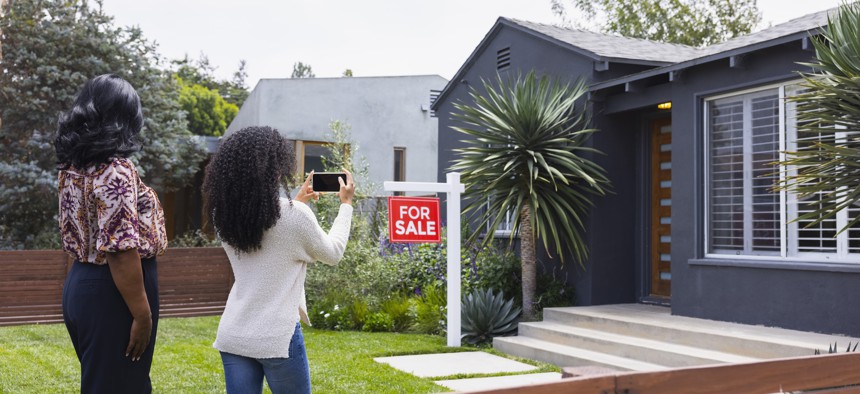HUD’s New Plan to Help Low-Income Renters

The Good Brigade via Getty Images
The department of Housing and Urban Development is looking to give households a boost building credit, saving money and improving financial literacy.
The Biden administration is rolling out a new initiative meant to assist low-income renters with building wealth and securing fair housing opportunities.
U.S. Housing and Urban Development Secretary Marcia Fudge announced her department’s “Bridging the Wealth Gap” plan during a live-streamed Axios event on Thursday. It aims to help people build credit, save money, and access financial counseling, Fudge said. HUD is also making available $113 million through the Family Self-Sufficiency program, which the department describes as “the nation’s largest asset-building program for low-income families.”
“The better prepared, the better educated, the better informed people are, the better decisions they make about their lives,” Fudge said. “It’s like we used to say—‘people would do better if they knew better.’ Our job is to make sure people know better.”
That Family Self-Sufficiency program currently serves around 65,000 participants at over 700 Public Housing Authorities and, in 2021, the average participating family had about $9,500 in savings, according to HUD.
The program involves families entering into individual “training and services plans.” These plans outline goals they’ll try to achieve around growing their income and savings and reducing their use of welfare assistance and rent subsidies. Some of the services coordinated through the program can include child care, job training and financial literacy. Participants also gain access to an interest-bearing escrow account where they can save money.
In this latest round of the program, private landlords of multifamily properties—in addition to public entities—will, for the first time, be able to apply for the funds, Fudge said. Much of the funding will allow grantees to bring in resources like instructors on banking or budgeting.
Applications to participate in the program opened Thursday and will close Oct. 2. HUD expects to award about 800 grants.
Other upcoming initiatives HUD has planned under its Bridging the Wealth Gap agenda will focus on areas like allowing people to build credit through rent reporting and integrating financial well-being services into public housing practices.
Thursday’s event looked at the nation’s housing challenges with a focus on equity and addressing the systemic disadvantages homeowners of color often face.
The gap between the number of Black and white homeowners is greater now than in 1968, when the Fair Housing Act was passed, according to HUD. Meanwhile, properties owned by Black homeowners are often appraised at lower values than those held by white property owners
Property appraisal bias has resulted in the loss of billions of dollars in wealth in Black neighborhoods, noted Lisa Rice, president and CEO of the National Fair Housing Alliance.
“There are a number of solutions that need to be put in place, including increasing diversity in the appraisal industry, developing better training for appraisers so that they understand how to comply with the law, and then bringing onboard more technologies that can increase accuracy and consistency in appraisals,” Rice said.
Molly Bolan is an assistant editor for Route Fifty.
NEXT STORY: States Post Yellow Alerts to Try to Nab Hit-and-Run Drivers






